
0
+
Google Reviews

0
+
4.2(2085 Ratings)
The GIAC Cloud Security Automation (GCSA) course equips professionals with the skills to securely automate cloud environments. This hands-on training covers cloud security fundamentals, DevSecOps principles, and automation tools essential for protecting dynamic cloud infrastructures. Ideal for cybersecurity practitioners, the course emphasizes real-world applications of automated security processes to prevent, detect, and respond to threats in cloud-based systems.


Curriculum Designed by Experts
Introduction to Cloud Computing and Security
Cloud Service Models (IaaS, PaaS, SaaS)
IAM Fundamentals
Cloud Infrastructure Configuration and Security
Automating Cloud Security Operations
Integrating Security into CI/CD Pipelines
Secure Software Development in Cloud
Cloud Logging and Monitoring Fundamentals
Cloud Networking Concepts
Cloud Data Protection and Encryption
Data Loss Prevention (DLP) in Cloud
Cloud Incident Response Frameworks
Automating Incident Response
Cloud Compliance Frameworks
Cloud Governance and Risk Management
Capstone Project
Real-World Case Studies
GCSA Course Certification equips you with in-demand skills for cloud security. Enroll in GCSA training to master security automation, compliance, and threat detection. Gain expertise in cloud architecture and secure your career in cybersecurity. Join now for hands-on learning and industry-recognized certification!
GCSA Course Certification opens doors to top cybersecurity roles like Cloud Security Engineer, Compliance Analyst, and Security Architect. Enroll in GCSA training to gain hands-on skills in cloud security, automation, and compliance. Secure your future in the ever-growing cybersecurity industry today!
GCSA Course Certification prepares you for cloud adoption by mastering security automation, compliance, and threat management. Enroll in GCSA training to gain expertise in securing cloud environments and adapting to evolving cybersecurity needs. Advance your career with industry-recognized cloud security skills today!
GCSA Course Certification enhances scalability and flexibility in cloud security. Enroll in GCSA training to master security automation, compliance, and adaptive threat management. Gain expertise in securing dynamic cloud environments and advance your cybersecurity career with in-demand skills!
GCSA Course Certification equips you with cost management skills for cloud security. Enroll in GCSA training to optimize security spending, automate compliance, and prevent costly breaches. Gain expertise in securing cloud environments while managing costs effectively. Advance your career with in-demand cloud security skills!
GCSA Course Certification strengthens security and compliance in cloud environments. Enroll in GCSA training to master risk management, security automation, and regulatory compliance. Gain in-demand skills to protect cloud infrastructure and advance your cybersecurity career. Secure your future today!
Radical Technologies is the leading IT certification institute in Pune, offering a wide range of globally recognized certifications across various domains. With expert trainers and comprehensive course materials, it ensures that students gain in-depth knowledge and hands-on experience to excel in their careers. The institute’s certification programs are tailored to meet industry standards, helping professionals enhance their skillsets and boost their career prospects. From cloud technologies to data science, Radical Technologies covers it all, empowering individuals to stay ahead in the ever-evolving tech landscape. Achieve your professional goals with certifications that matter.
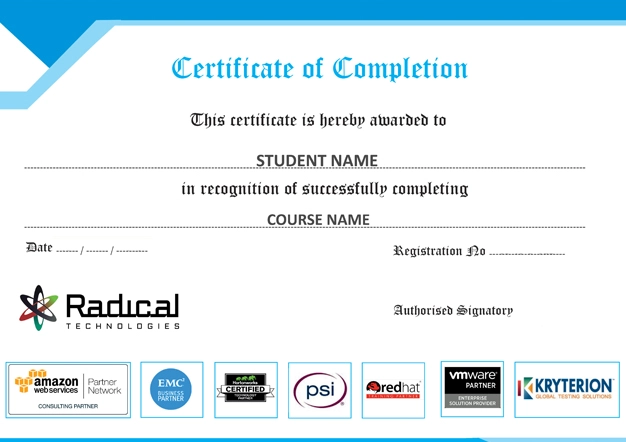


At Radical Technologies, we are committed to your success beyond the classroom. Our 100% Job Assistance program ensures that you are not only equipped with industry-relevant skills but also guided through the job placement process. With personalized resume building, interview preparation, and access to our extensive network of hiring partners, we help you take the next step confidently into your IT career. Join us and let your journey to a successful future begin with the right support.
At Radical Technologies, we ensure you’re ready to shine in any interview. Our comprehensive Interview Preparation program includes mock interviews, expert feedback, and tailored coaching sessions to build your confidence. Learn how to effectively communicate your skills, handle technical questions, and make a lasting impression on potential employers. With our guidance, you’ll walk into your interviews prepared and poised for success.
At Radical Technologies, we believe that a strong professional profile is key to standing out in the competitive IT industry. Our Profile Building services are designed to highlight your unique skills and experiences, crafting a resume and LinkedIn profile that resonate with employers. From tailored advice on showcasing your strengths to tips on optimizing your online presence, we provide the tools you need to make a lasting impression. Let us help you build a profile that opens doors to your dream career.

Infrastructure Provisioning
Implementing automated infrastructure provisioning and configuration management using Ansible. This may include setting up servers, networking devices, and other infrastructure components using playbooks and roles.

Applications Deployment
Automating the deployment and orchestration of applications across development, testing, and production environments. This could involve deploying web servers, databases. middleware, and other application components using Ansible

Continuous Integration
Integrating Ansible into CI/CD pipelines to automate software. build, test, and deployment processes. This may include automating the creation of build artifacts, running tests, and deploying applications to various environments.

Enrolling in the GIAC Cloud Security Automation (GCSA) Course in Bengaluru was a game-changer for my career. The trainers provided hands-on experience with real-world scenarios that have truly enhanced my skills.
The GIAC Cloud Security Automation (GCSA) Certification in Bengaluru helped me gain a deeper understanding of cloud security. The training was thorough, and the course materials were very helpful.
I was looking for a GIAC Cloud Security Automation (GCSA) Institute in Bengaluru that offered comprehensive training. Radical Technologies exceeded my expectations, with expert instructors and an up-to-date curriculum.
The GIAC Cloud Security Automation (GCSA) Classes in Bengaluru were an incredible experience. The instructors were experienced, and the lab sessions were highly valuable for practical learning.
The GIAC Cloud Security Automation (GCSA) Online Course in Bengaluru allowed me to learn at my own pace while ensuring I received detailed feedback on my assignments and projects.
Radical Technologies offers the best GIAC Cloud Security Automation (GCSA) Training in Bengaluru. The course helped me develop the skills needed to automate and manage cloud security effectively.
I enrolled in the GIAC Cloud Security Automation (GCSA) Certification in Bengaluru, and I was impressed with the quality of training provided. The hands-on labs gave me confidence in my skills.
The GIAC Cloud Security Automation (GCSA) Online Training in Bengaluru was very flexible and well-structured. The course helped me understand cloud security automation concepts deeply.
After completing the GIAC Cloud Security Automation (GCSA) Online Certification in Bengaluru, I was able to apply what I learned directly to my job. The training was practical and industry-focused.
The GIAC Cloud Security Automation (GCSA) Corporate Training in Bengaluru helped our team improve our cloud security practices. The course content was tailored to meet our organization's needs.
Radical Technologies provided exceptional GIAC Cloud Security Automation (GCSA) Classes in Bengaluru. The instructors explained complex concepts in a simple, easy-to-understand way.
The GIAC Cloud Security Automation (GCSA) Institute in Bengaluru offered a structured learning path. The support I received from the faculty made it easier to grasp advanced cloud security automation topics.
I took the GIAC Cloud Security Automation (GCSA) Online Classes in Bengaluru and was impressed by the course's depth and practical approach. It provided me with valuable insights into cloud security automation.
The GIAC Cloud Security Automation (GCSA) Course in Bengaluru was one of the best learning experiences I’ve had. The trainers were knowledgeable and ensured that every student understood the material.
With the GIAC Cloud Security Automation (GCSA) Online Training in Bengaluru, I was able to balance my work schedule with learning. The course content was up-to-date and aligned with industry standards.
I highly recommend the GIAC Cloud Security Automation (GCSA) Certification in Bengaluru for anyone serious about cloud security. The course not only covered the basics but also provided advanced insights.
Radical Technologies’ GIAC Cloud Security Automation (GCSA) Institute in Bengaluru offers great flexibility for professionals. The online certification program was well-organized and interactive.
The GIAC Cloud Security Automation (GCSA) Online Course in Bengaluru was a great way to learn cloud security automation without taking time off work. The learning modules were engaging and very informative.
Completing the GIAC Cloud Security Automation (GCSA) Training in Bengaluru has been pivotal in advancing my career. The course provided both theoretical knowledge and hands-on experience.
I took the GIAC Cloud Security Automation (GCSA) Corporate Training in Bengaluru for our entire IT team. The trainers tailored the content to our needs, making it relevant and impactful.
The GIAC Cloud Security Automation (GCSA) Online Certification in Bengaluru program was very comprehensive, covering everything from cloud security best practices to automation techniques.
The GIAC Cloud Security Automation (GCSA) Classes in Bengaluru gave me the confidence to automate cloud security processes at my workplace. I now feel equipped to handle security incidents more efficiently.
Radical Technologies offers excellent GIAC Cloud Security Automation (GCSA) Online Training in Bengaluru. The learning modules were clear and well-paced, allowing me to absorb the material at my own speed.
The GIAC Cloud Security Automation (GCSA) Certification in Bengaluru was a fantastic learning experience. The hands-on labs were particularly useful for understanding practical applications.
I highly recommend Radical Technologies for GIAC Cloud Security Automation (GCSA) Training in Bengaluru. The course not only taught me about cloud security automation but also how to implement these concepts in real-world environments.








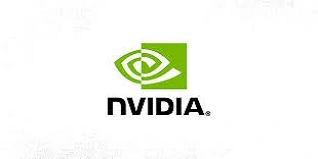
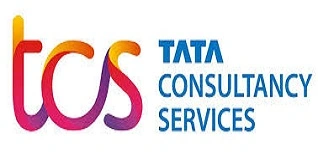




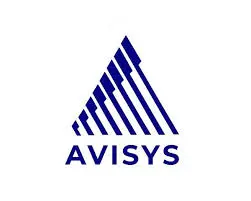
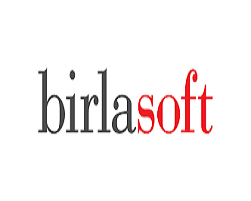
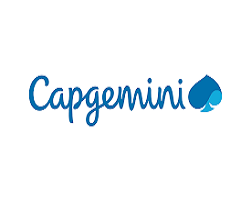
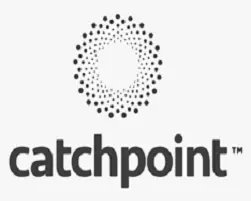


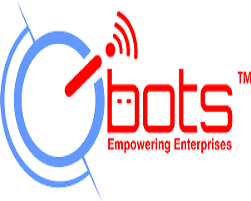
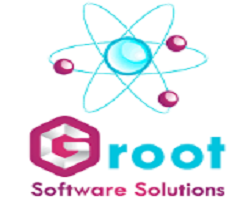



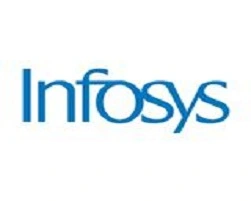
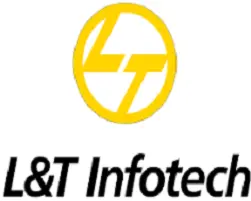
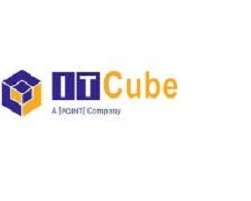

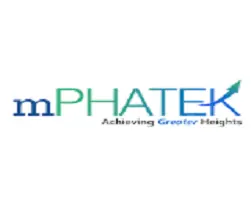
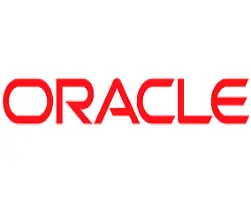






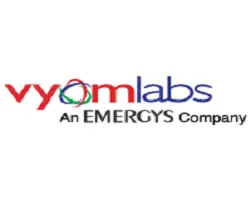
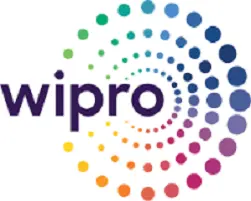
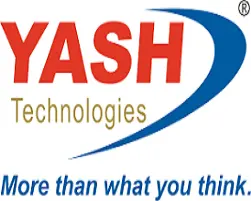
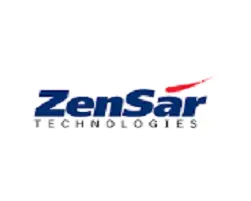
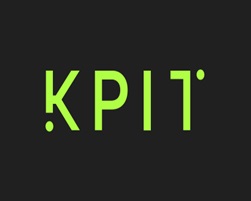

The GIAC Cloud Security Automation (GCSA) certification is a globally recognized credential that focuses on automating security processes in cloud environments. It equips professionals with the skills to secure cloud infrastructure through automated monitoring, incident response, vulnerability management, and more. GCSA is ideal for cloud security professionals who aim to automate tasks in cloud platforms like AWS, Azure, and Google Cloud.
The GCSA certification helps professionals enhance their skills in securing cloud environments through automation. It is an excellent choice for anyone looking to advance their career in cloud security, as it demonstrates expertise in cutting-edge practices and tools. With increasing cloud adoption, this certification opens up opportunities in a rapidly growing field.
The GCSA exam covers various topics, including:
While there are no formal prerequisites for the GCSA certification, it is highly recommended that candidates have prior experience or knowledge in cloud security, automation, and relevant cloud platforms like AWS, Azure, or Google Cloud. Familiarity with scripting languages and automation tools like Terraform, Ansible, or Python is also beneficial.
To prepare for the GCSA exam, you can:
The GCSA exam consists of 75 multiple-choice questions, and candidates are given 2 hours to complete the exam.
To pass the GCSA exam, candidates must score at least 70%. The exam is designed to test both theoretical knowledge and practical application of cloud security automation concepts.
Several tools are valuable for automating cloud security, including:
Automation enhances cloud security by reducing human error, increasing the speed of threat detection and incident response, and improving overall operational efficiency. Automated systems can monitor cloud environments in real-time, ensuring that any security issues are identified and addressed immediately.
Infrastructure as Code (IaC) is the practice of managing and provisioning cloud infrastructure using code rather than manual configuration. In GCSA, professionals are trained to automate infrastructure deployment, configuration, and security policies using IaC tools like Terraform or AWS CloudFormation. IaC helps ensure that cloud environments are secure and consistent across deployments.
Automating security incident response involves creating predefined workflows that trigger specific actions in response to security events. For example, using AWS Lambda, security incidents can automatically initiate remediation actions like isolating compromised instances or alerting the security team. Automated responses ensure faster recovery and reduced impact from incidents.
Yes, GCSA certification is highly valuable for automating cloud compliance processes. Professionals can use automated tools to continuously monitor and verify compliance with regulatory standards like GDPR, HIPAA, or PCI-DSS. This reduces the risk of non-compliance and ensures that organizations maintain secure, compliant cloud environments.
The cost of the GIAC Cloud Security Automation (GCSA) exam is approximately $1,499, which includes training materials, exam access, and additional benefits such as practice exams and study resources.
The GCSA certification is valid for 4 years. After this period, you will need to recertify to maintain your credential. Recertification can be achieved by completing additional courses or passing a new exam.
GCSA-certified professionals can pursue various cloud security roles, such as:
Ambegaon Budruk | Aundh | Baner | Bavdhan Khurd | Bavdhan Budruk | Balewadi | Shivajinagar | Bibvewadi | Bhugaon | Bhukum | Dhankawadi | Dhanori | Dhayari | Erandwane | Fursungi | Ghorpadi | Hadapsar | Hingne Khurd | Karve Nagar | Kalas | Katraj | Khadki | Kharadi | Kondhwa | Koregaon Park | Kothrud | Lohagaon | Manjri | Markal | Mohammed Wadi | Mundhwa | Nanded | Parvati (Parvati Hill) | Panmala | Pashan | Pirangut | Shivane | Sus | Undri | Vishrantwadi | Vitthalwadi | Vadgaon Khurd | Vadgaon Budruk | Vadgaon Sheri | Wagholi | Wanwadi | Warje | Yerwada | Akurdi | Bhosari | Chakan | Charholi Budruk | Chikhli | Chimbali | Chinchwad | Dapodi | Dehu Road | Dighi | Dudulgaon | Hinjawadi | Kalewadi | Kasarwadi | Maan | Moshi | Phugewadi | Pimple Gurav | Pimple Nilakh | Pimple Saudagar | Pimpri | Ravet | Rahatani | Sangvi | Talawade | Tathawade | Thergaon | Wakad
I had an amazing experience with this service. The team was incredibly supportive and attentive to my needs. The quality of the work exceeded my expectations. I would highly recommend this to anyone looking for reliable and professional service."
I had an amazing experience with this service. The team was incredibly supportive and attentive to my needs. The quality of the work exceeded my expectations. I would highly recommend this to anyone looking for reliable and professional service."
I had an amazing experience with this service. The team was incredibly supportive and attentive to my needs. The quality of the work exceeded my expectations. I would highly recommend this to anyone looking for reliable and professional service."
I had an amazing experience with this service. The team was incredibly supportive and attentive to my needs. The quality of the work exceeded my expectations. I would highly recommend this to anyone looking for reliable and professional service."
I had an amazing experience with this service. The team was incredibly supportive and attentive to my needs. The quality of the work exceeded my expectations. I would highly recommend this to anyone looking for reliable and professional service."
The GIAC Cloud Security Automation (GCSA) certification is a globally recognized credential for professionals who wish to demonstrate their expertise in cloud security automation. This certification focuses on equipping professionals with the skills required to secure cloud environments through automated security operations. With organizations increasingly shifting to the cloud, there is a growing need for proficient security professionals who can automate and secure cloud platforms.
The GIAC Cloud Security Automation (GCSA) certification is offered by the Global Information Assurance Certification (GIAC), a leading provider of industry-standard certifications in the cybersecurity space. GCSA specifically focuses on the skills and knowledge required to manage, automate, and secure cloud infrastructure. The certification validates an individual’s proficiency in leveraging automated solutions to ensure cloud security, risk management, and compliance across various cloud environments like AWS, Azure, Google Cloud, and others.
Key Topics Covered in GCSA Certification
The GCSA exam covers a broad range of cloud security automation topics. Some of the key areas include:
Cloud Security Fundamentals: Understanding the fundamentals of cloud computing and security is essential. Candidates will gain knowledge of key cloud architecture principles, security models, and regulatory frameworks.
Automation in Cloud Security: The course emphasizes automation in cloud environments, teaching techniques for automating security processes, vulnerability management, incident response, and threat detection. Key tools and scripting languages like Python, Terraform, and Ansible may be explored.
Cloud Security Threats and Vulnerabilities: Learn about the specific threats that cloud environments face, such as unauthorized access, misconfiguration, data breaches, and insider threats. Candidates will also study how to identify and mitigate these vulnerabilities.
Cloud Security Best Practices: Best practices such as identity and access management (IAM), encryption, logging, and continuous monitoring will be covered. Understanding cloud-native security tools provided by platforms like AWS, Google Cloud, and Azure is also an essential part of the curriculum.
Compliance and Risk Management: The certification will teach candidates how to implement and maintain compliance with industry standards and regulations like GDPR, HIPAA, and PCI-DSS. Candidates will also learn how to perform risk assessments and audits.
Security Automation Frameworks: Candidates will be introduced to frameworks and methodologies for automating security tasks in the cloud, such as the Security Automation Protocol (SAP) and other related tools.
Incident Response and Recovery in the Cloud: Learn how to design and implement incident response procedures and disaster recovery plans in a cloud environment. This includes creating automated workflows for handling security incidents and ensuring business continuity.
Securing Cloud Infrastructure as Code (IaC): Automation is critical for managing infrastructure as code (IaC). The certification delves into tools like Terraform and CloudFormation, focusing on how they can be used to secure cloud infrastructure and improve security through automation.
Why Pursue the GIAC Cloud Security Automation (GCSA)?
Increase in Demand for Cloud Security Professionals: With the rise of cloud adoption, organizations are prioritizing securing their cloud infrastructures. The demand for professionals with cloud security expertise continues to grow. GCSA certification makes professionals more marketable by showcasing their ability to automate and secure cloud environments.
Global Recognition: The GIAC Cloud Security Automation certification is recognized worldwide and adds credibility to your resume. Being certified in cloud security automation means you’re proficient in securing and automating complex cloud environments, making you a valuable asset to any organization.
Enhanced Career Prospects: As businesses migrate to the cloud, securing cloud environments is critical. GCSA-certified professionals can take on roles such as Cloud Security Engineer, Cloud Security Architect, Cloud Automation Specialist, and more. This certification opens up opportunities for career growth and leadership positions.
Mastery of Cloud Security Tools: By pursuing GCSA, individuals gain expertise in cloud security automation tools and technologies, making them proficient in handling various cloud security management platforms like AWS Security Hub, Azure Security Center, Google Cloud Security Command Center, and others.
Improved Security Posture for Organizations: With the increasing complexity of cloud infrastructures, organizations are looking for professionals who can automate security to reduce human error, improve operational efficiency, and respond quickly to incidents. GCSA helps professionals meet these needs.
The GIAC Cloud Security Automation (GCSA) certification plays a vital role in ensuring secure cloud environments by automating security processes. As cloud computing continues to evolve, businesses need skilled professionals to protect their cloud infrastructures effectively. The GCSA certification equips individuals with the necessary expertise to automate cloud security tasks, making it a highly valuable asset for various applications across industries. Below, we explore the key applications of GIAC Cloud Security Automation in today’s cloud environments.
1. Automated Cloud Security Monitoring
Cloud security monitoring involves continuously assessing cloud environments for vulnerabilities, misconfigurations, and potential threats. With GCSA expertise, professionals can implement automated security monitoring systems that track and detect security anomalies in real-time. Using tools like AWS CloudTrail, Azure Security Center, and Google Cloud Security Command Center, GCSA-certified professionals can automate the monitoring of logs, security events, and alerts, reducing the need for manual oversight and increasing response speed.
Application in industries:
Financial Services: Automating the monitoring of sensitive customer data and transactions to prevent fraud.
Healthcare: Ensuring compliance with regulations like HIPAA through continuous monitoring of cloud-based patient data.
2. Automating Security Incident Response
In the event of a security breach or incident, a swift response is critical to minimize damage. GCSA-certified professionals can automate incident response workflows, allowing for immediate actions like isolating compromised systems, notifying security teams, and initiating remediation processes. Automation tools such as AWS Lambda, Azure Automation, and security orchestration platforms enable rapid responses to security incidents, ensuring a timely and efficient recovery process.
Application in industries:
E-commerce: Rapidly addressing potential data breaches involving customer payment information.
Government: Automating incident response to protect sensitive government data from cyberattacks.
3. Automating Vulnerability Management
Vulnerability management is essential to identify, assess, and mitigate security weaknesses in cloud environments. The GCSA certification provides professionals with the skills to automate vulnerability scanning and patch management, ensuring that cloud infrastructure remains secure and up-to-date. By integrating vulnerability management tools like AWS Inspector, Qualys, and Tenable, GCSA-certified professionals can ensure that potential threats are detected and mitigated without manual intervention.
Application in industries:
Retail: Automating vulnerability scanning for e-commerce platforms to ensure secure transactions.
Telecommunications: Automatically identifying vulnerabilities in network infrastructure to protect data flows.
4. Infrastructure as Code (IaC) Security Automation
Infrastructure as Code (IaC) is a modern approach to managing cloud infrastructure. By using IaC tools such as Terraform, AWS CloudFormation, and Azure Resource Manager, GCSA-certified professionals can automate the provisioning, configuration, and security of cloud infrastructure. Security controls can be embedded directly into the IaC scripts, ensuring that cloud environments are secure from the outset, and minimizing the risks associated with manual configuration.
Application in industries:
Software Development: Automating the deployment of secure cloud infrastructure for development and testing environments.
Manufacturing: Implementing IaC security automation to manage and protect production environments in the cloud.
5. Cloud Compliance and Governance Automation
With various regulations governing cloud usage, maintaining compliance is a critical task for organizations. GCSA-certified professionals can automate compliance checks to ensure that cloud environments meet industry standards and regulatory requirements such as GDPR, HIPAA, PCI-DSS, and SOC 2. Automated compliance tools allow businesses to continuously verify that security controls are in place and ensure that any changes or updates to cloud infrastructure adhere to the necessary standards.
Application in industries:
Healthcare: Automating compliance with HIPAA regulations for cloud-based patient records and health systems.
Financial Services: Ensuring continuous adherence to PCI-DSS standards for processing payment information in the cloud.
6. Automated Identity and Access Management (IAM)
Managing user identities and access rights is a cornerstone of cloud security. GCSA-certified professionals can automate IAM processes using tools such as AWS IAM, Azure Active Directory, and Google Cloud Identity. This includes automating user provisioning, de-provisioning, and the enforcement of least-privilege access policies. Automating IAM ensures that only authorized individuals have access to cloud resources, and it helps prevent unauthorized access or data breaches.
Application in industries:
Education: Automating IAM for managing access to cloud-based learning platforms.
Legal Services: Ensuring that only authorized personnel can access sensitive client data in the cloud.
7. Automated Cloud Data Encryption and Key Management
Data encryption is essential to protect sensitive information stored in the cloud. With GCSA skills, professionals can automate the encryption of data at rest and in transit, using cloud-native encryption tools like AWS KMS, Azure Key Vault, and Google Cloud KMS. Automated key management ensures that encryption keys are stored securely and rotated regularly, reducing the risk of key compromise.
Application in industries:
Financial Services: Automating the encryption of financial transactions and client data.
Energy Sector: Encrypting IoT sensor data and operational data in the cloud to prevent data theft or misuse.
8. Automated Cloud Security Audits and Reporting
Cloud security audits are crucial for ensuring compliance with security policies and industry regulations. GCSA-certified professionals can automate the auditing process, generating detailed reports on security posture, vulnerabilities, and compliance status. Automation tools can collect and analyze data from multiple cloud resources, providing organizations with actionable insights and reducing the manual effort involved in audit preparation.
Application in industries:
Manufacturing: Automating security audits to ensure compliance with industry-specific standards like ISO 27001 for cloud-based operational systems.
Logistics: Generating automated security audit reports for cloud systems that manage inventory and shipments.
9. Automated Cloud Security Policy Enforcement
Security policies govern how cloud resources and data should be handled to ensure security and compliance. GCSA-certified professionals can automate the enforcement of security policies, using tools like AWS Config, Azure Policy, and Google Cloud’s Organization Policies. Automated policy enforcement ensures that cloud resources are consistently configured and maintained in accordance with security standards and best practices.
Application in industries:
Healthcare: Enforcing strict security policies for cloud-based electronic health record (EHR) systems.
Technology: Automating security policies for cloud-based software applications to ensure continuous protection.
Radical Technologies is a premier GIAC Cloud Security Automation (GCSA) Institute in Bengaluru, dedicated to providing top-notch training in cloud security automation. As the leading institute for GIAC Cloud Security Automation (GCSA) Course in Bengaluru, we specialize in equipping professionals with the skills and knowledge needed to excel in the rapidly evolving field of cloud security.
Our GIAC Cloud Security Automation (GCSA) Training in Bengaluru is designed for individuals looking to enhance their expertise in automating cloud security processes, managing vulnerabilities, and securing cloud infrastructures. With an industry-recognized GIAC Cloud Security Automation (GCSA) Certification in Bengaluru, our training program ensures that students gain practical, hands-on experience while mastering key cloud security automation tools and techniques.
At Radical Technologies, we offer a wide range of learning options, including in-person GIAC Cloud Security Automation (GCSA) Classes in Bengaluru, flexible GIAC Cloud Security Automation (GCSA) Online Classes in Bengaluru, and specialized GIAC Cloud Security Automation (GCSA) Online Course in Bengaluru. Whether you prefer classroom instruction or the convenience of online learning, our courses cater to your preferred mode of study, ensuring that you receive high-quality education wherever you are.
For organizations seeking to upskill their teams, we also provide customized GIAC Cloud Security Automation (GCSA) Corporate Training in Bengaluru, tailored to meet specific business requirements. Our corporate training programs ensure that companies stay ahead in cloud security practices and can automate their cloud security infrastructure efficiently.
By choosing Radical Technologies, you gain access to the best GIAC Cloud Security Automation (GCSA) Online Training in Bengaluru, which includes up-to-date learning materials, real-world case studies, and expert guidance. Our GIAC Cloud Security Automation (GCSA) Online Certification in Bengaluru is designed to help you advance your career with a globally recognized credential, empowering you to secure cloud infrastructures and automate security processes like never before.
Join us at Radical Technologies for the most comprehensive GIAC Cloud Security Automation (GCSA) Course in Bengaluru and take your cloud security skills to the next level!

(Our Team will call you to discuss the Fees)
